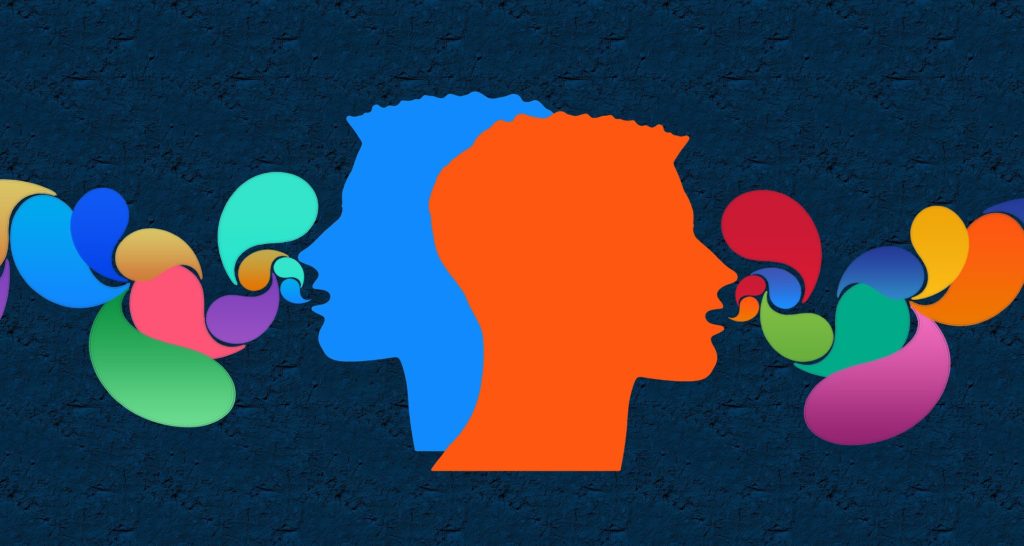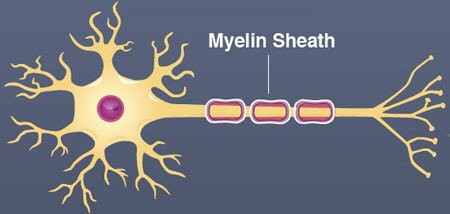
Take Control of Your Life With This One Word
“Whether you think you can, or you think you can’t, you’re right.”
Henry Ford
Your thoughts dictate your actions.
This isn’t a revelatory concept. And yet, many of us are sabotaging ourselves on a daily basis with our words and thoughts.
There is one word in particular that’s beating us before we even begin. A combination of four letters holding us back from achieving our full potential.
It’s a word that weakens us… absolves us of responsibility… and robs us of the honest need to try.
But before we talk about that word, let’s talk about something way sexier: Your Brain.
Specifically, let’s talk about how your brain learns.
Ooh, baby. (Trust me, this is important.)
How We Learn
You got a whole bucketful of cells in your brain called neurons. These little buggers are responsible for the entirety of thought taking place within your skull-space.
The way neurons achieve this task is actually quite interesting, because, on their own, an individual neuron isn’t much more than a blinking light.
It’s when one neuron forms a connection with another neuron, which in turns signals another neuron, that we start getting some pretty insane effects (ie: conscious thought).
We call these connections a neuronal pathway, and they are everything.
Now, the first time you ever think a thought, you’ve got a little neuron blinking somewhere in your gray-matter. That poor little fella is sending our an electrical impulse in an attempt to sync-up with a certain buddy hiding elsewhere in your brain.
Eventually they find one another, but it’s a slow, cumbersome process the first time.
Remember how it felt to learn a foreign language? Memorizing the word for table was probably a little tricky. It required focused concentration to create the initial neuronal pathway.

Over time, however, (assuming you continually reference the word for table) the retrieval process became easier and easier.
We call this muscle memory. That is, by continually thinking a thought, it becomes easier and easier to conjure that thought in the future.
But how is this possible? Why should it be that a thought becomes easier to have the more often you have it? What’s the mechanism at play?
Myelin Sheath, baby. It’s like fiber optics for the brain.
Your brain is a marvel of evolutionary engineering.
One of the things it does incredibly well is it creates efficient systems and pathways like nothing else.
This makes sense if you stop to consider the fact that your brain is your most energy consumptive organ. If it were always running at full-capacity, you’d be constantly drained and have no energy for anything else.
Think about how you feel after a real long, mentally taxing study session. Now imagine if that’s how you always felt.
From a living in the wild survival standpoint, that would be no good. So it is our brain evolved to become more efficient at learned tasks and behaviors.
The specific mechanism utilized to accomplish this task is called myelin sheath. This substance is the entire reason the planet Earth has such huge animals like whales and elephants.
Without myelin, it would take a hot-minute for thoughts to travel from one part of the body to another.
It’d be like your brain is running on dial-up.
Thanks to myelin, however, you’ve got full-blown fiber optic potential in your thinking noodle.

It works like this: Myelin coats your neuronal pathway, creating an insulated tunnel (aka: sheath) through which electrical impulses can travel. The thicker the coating, the more quickly thoughts travel.
When we talk about muscle memory, what we’re really saying is:
You’ve thought a thought so often, it’s become deeply coated in myelin.
This a great thing.
But it can also be a horrible thing.
PRACTICE DOESN’T MAKE PERFECT, IT MAKES PERMANENT
Myelin doesn’t care what thoughts or actions you’re reinforcing. It’s an equal opportunity reinforcer.
Think happy, positive thoughts? Great! Those thoughts become easier and easier to retrieve over time.
Think sad, depressing thoughts? Bummer. Those thoughts become easier and easier to retrieve over time.
Are you starting to understand just how important positive self-talk really is?
Yeah, I thought so.
Where we learn the word you should remove from your vocabulary.
Remember that mysterious 4 letter word we discussed earlier? The one that’s holding you back and murdering your full-potential?
Well, now that you understand the neurochemistry underlying the need to remove it from your language, it’s time to learn the word itself:
CAN’T
This single word has stopped more people from succeeding in life than any other. It stops us from even trying.
It absolves us of responsibility because if we truly can’t do something, then surely it would be a waste of time even trying.
Problem is, so many people out there reflexively say I can’t… without objectively examining the truth behind the statement. They’ve hardwired the thought in their brain.
It’s become ingrained in their muscle memory.
I can’t…
It happens so quickly, so frequently, you probably don’t even recognize it happening anymore.
And yet, if you want to break the cycle, you have to become conscious of how often it occurs.
Once you notice it, it’s time to overwrite it. It’s time to break the loop and replace it with something else.
It’s time to start positively reinforcing a neuronal pathway that’ll help, rather than hurt, you.
The Power Word You Need to Say Instead
Often when we say can’t, we don’t truly know whether the thing before us is possible. It’s simply reflex. As a result of living in this unsure state, many of us don’t even try.
We pack it up and call it a day before ever even giving an honest effort at the task in question.
This in turn reinforces the initial thought of, I can’t…
It’s a slippery slope, but there is a way off the I can’t treadmill.
It’s the word:
YET
When faced with a difficult task (let’s say to quit smoking), you could have one of two responses.
I’ve tried hundreds of times before, and I just can’t make it stick.
Or…
I’ve tried hundreds of times before, but I haven’t succeeded yet.
One of these statements is full of weakness and self-defeat.
The other is full of strength and optimism.
Which one do you think you should adopt if your goal is to actually stop smoking?
The power of yet is profound, because it simultaneously acknowledges the difficulty before us, and the challenges we’ve faced in the past (to not do so would be outright self-delusion and that’s not helping anybody), but it also leaves the door open for success.
Yet is a statement of future intent. You will not give up. Your future success is not less likely as a result of your past failure.
When you hard-wire yet into your brain, then the entire world opens up before you. Obstacles are less daunting, because you enter challenging situations with an open, growth mindset.
You claim power and responsibility for yourself.
And THOSE are two habits worth wiring into muscle memory.